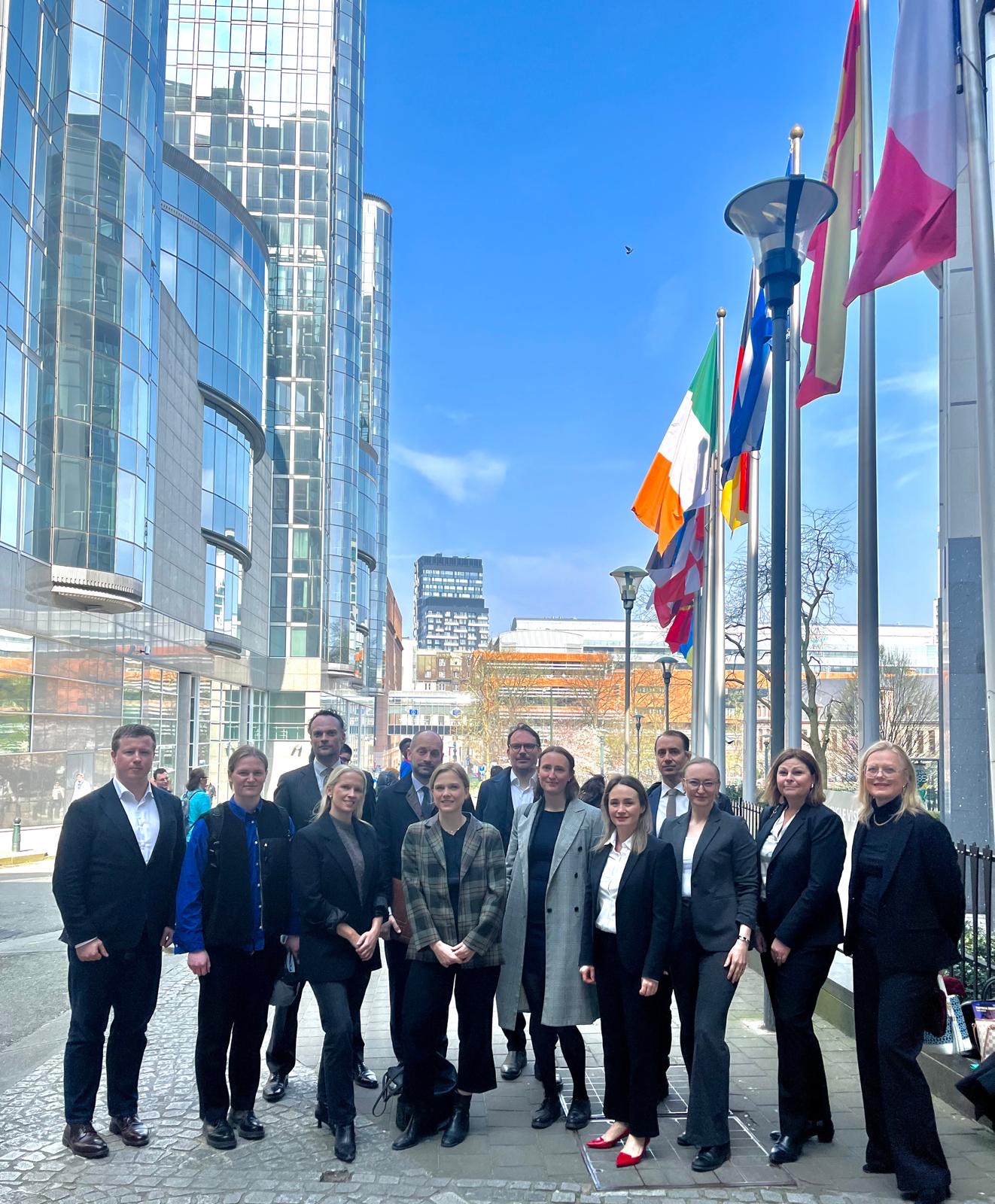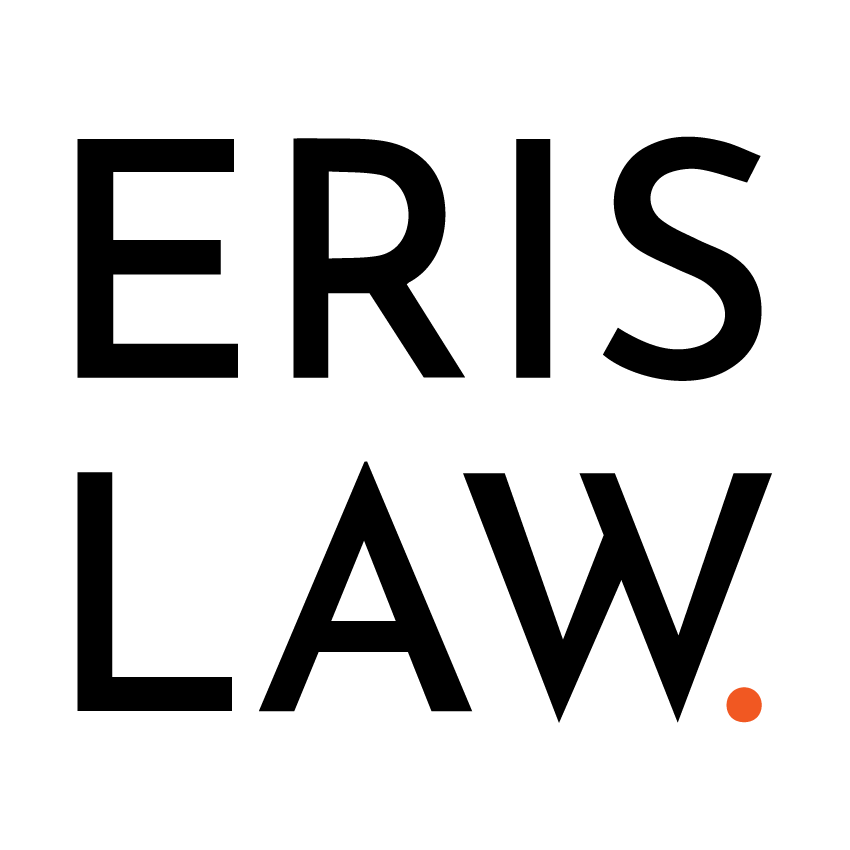What’s New at Eris Law Advokatbyrå AB
🏛️This week, Eris Law Advokatbyrå AB had the privilege of visiting the European Parliament in Brussels as part of SweFinTech.
We had insightful discussions with Jörgen Warborn 🇪🇺 on strengthening Europe’s competitiveness and the regulatory impact of the Omnibus package on the fintech industry.
With the regulatory landscape constantly evolving, staying ahead is more important than ever. At Eris Law Advokatbyrå AB, we are dedicated to helping businesses navigate complex legal challenges with expertise and clarity.
📩 Want to learn how we can support your company? Get in touch at info@erislaw.se.

Fintech
Unicorns are taking a hit! Only a quarter of EU Unicorns are profitable: A recent analysis reveals that only 13 out of Europe’s 50 fintech unicorns have achieved profitability. Notable profitable companies include Revolut, Bitpanda, and SumUp. This trend highlights a shift in the fintech sector towards sustainable growth amid challenging economic conditions.
Klarna Partners with OnePay to Become Walmart’s Exclusive BNPL Provider: Klarna has secured an exclusive partnership with OnePay, a Walmart-backed consumer finance app, to offer installment loans for Walmart purchases both online and in-store across the United States. This collaboration allows Walmart customers to choose flexible repayment terms ranging from 3 to 36 months, with loan management available via the OnePay app. This agreement replaces Affirm as Walmart’s buy-now-pay-later provider, marking a significant shift in the retailer’s financial services strategy.
French Fintech Swan Secures €42M to Expand Embedded Banking Across Europe: Paris-based fintech Swan has raised €42 million in a Series B funding round led by Eight Roads Ventures, with participation from existing investors including Lakestar, Accel, Creandum, Hexa, and BPI France. Specializing in embedded banking services, Swan enables businesses to integrate financial features such as accounts, cards, and payments into their products, currently processing over €1.5 billion in monthly transactions for more than 150 clients. The company plans to utilize the new capital to scale operations across Europe and hire 85 new employees to support its growth.
GDPR
CJEU Affirms Transgender Individuals’ Right to Rectify Gender Data Without Surgical Proof: The Court of Justice of the European Union (CJEU) ruled that under Article 16 of the GDPR, national authorities must correct inaccurate gender data in public registries upon request from transgender individuals. While authorities may require evidence to establish data inaccuracy, demanding proof of gender reassignment surgery infringes upon fundamental human rights. This decision underscores the importance of accurate personal data and the protection of individual rights within the EU.
Polish DPA Fines Financial Institution €132,000 for GDPR Violations regarding DPO independence: The Polish Data Protection Authority (UODO) imposed a fine of approximately €132,000 on a financial institution for failing to ensure the independence of its Data Protection Officer (DPO) and for inadequately documenting its credit scoring activities. The investigation revealed that the DPO was subordinate to the director of the data security department, compromising their independence, and that the institution lacked proper records and a data protection impact assessment for its profiling processes. These actions were found to violate Articles 30(1), 35(1), 35(7), and 38(3) of the GDPR.
Italian DPA Fines Company €8,000 for GDPR Violations Related to Former Employee’s Email Account: The Italian Data Protection Authority (Garante per la protezione dei dati personali) fined Sicurnet Liguria s.r.l. €8,000 for GDPR violations after the company failed to deactivate a former employee’s email account and did not respond to the individual’s access and deletion requests. The company kept the email account active for approximately nine months after employment termination, forwarding incoming emails to another company address without informing the former employee. This conduct breached GDPR principles, including purpose limitation, data minimization, and storage limitation.
Telecom
Augmented Reality (AR) is taking the spotlight: The tech industry’s focus is shifting away from virtual reality (VR) as it struggles to meet expectations, while augmented reality (AR) is emerging as the preferred technology. AR’s ability to integrate seamlessly into everyday applications and enhance real-world experiences is driving its growth. As major companies pivot toward AR, it is increasingly seen as the future of immersive technology.
Telecom Equipment Market Faces Biggest Drop in Two Decades: The global telecommunications equipment market has experienced its most significant downturn in two decades. Factors contributing to this decline include market saturation, reduced consumer demand, and economic uncertainties. This trend raises concerns about the future growth and investment in the telecoms infrastructure sector.
EU Cracks Down on Apple and Google Over Digital Market Rules: The European Union has accused tech giants Apple and Google of violating the Digital Markets Act (DMA). Apple is required to open its iOS system to enhance interoperability with third-party devices, while Google faces charges related to self-preferential treatment in its search services and restrictive practices on its Play Store. Both companies could face substantial fines if they fail to comply with the DMA regulations.
AI
AI is better than humans at analysing long-term ECG recordings: A large international study tested whether an AI model could replace humans in analyzing long-term ECG recordings, which are essential for diagnosing heart rhythm abnormalities like atrial fibrillation. The AI significantly outperformed human technicians, reducing missed diagnoses of severe arrhythmias from 4.4% to just 0.3%. Researchers believe this innovation could help address the global shortage of trained ECG technicians, making diagnostics faster and more accessible.
AI-supported breast cancer screening – new results suggest even higher accuracy: New findings from Lund University’s MASAI trial show that AI-supported breast cancer screening detected 29% more cancers than traditional methods, including 24% more early-stage invasive cancers. AI also identified 51% more pre-cancerous lesions while maintaining a low rate of false positives, reducing radiologists’ workload by 44%. Researchers will next analyze how AI can help detect interval cancers—those diagnosed between screenings—to further improve early detection and outcomes.
Sweden must act urgently to close the AI gap, says new report: A new report from Sweden’s AI commission warns that Sweden and Europe are falling behind the US and China in AI, emphasizing the need for clear political leadership and greater technological investment. Magnus Tyreman, Chair of the Board at the Stockholm School of Economics, highlighted Sweden’s potential to compete globally but stressed the urgency of faster decision-making and broader AI education. The commission’s recommendations include boosting research, expanding computational resources, and creating a shared AI infrastructure to drive innovation and economic growth.
Cybersecurity
”NIS360 2024 Report” by ENISA: The NIS360 report by ENISA assesses the maturity and criticality of high-criticality sectors under the NIS2 Directive, providing both comparative and in-depth analysis. Key findings highlight that electricity, telecoms, and banking are the most mature sectors, while digital infrastructures face challenges due to their heterogeneity and cross-border nature. In addition, ICT service management, space, public administrations, maritime, health, and gas sectors are identified as needing extra attention to address maturity gaps and enhance resilience.
FI Prepares for Dora Reporting Implementation: FI has announced the technical requirements for reporting under the Dora regulation, adhering to the European Banking Authority’s (EBA) framework 4.0. The Dora information register module will be available for reporting in both test and production environments starting March 25, 2025, using the XBRL-CSV format. Any changes to the timeline will be communicated continuously, and new module versions will initially be reported in XBRL-XML format.
MSB Report Highlights IT Incident Causes and Prevention: The Swedish Civil Contingencies Agency (MSB) has released its annual report on IT incidents, revealing that about half of all incidents in 2024 were due to mistakes or system errors, often occurring during updates or configurations. Government agencies and organizations under the NIS Act reported a total of 319 IT incidents, with 163 organizations submitting at least one report. The report emphasizes the importance of systematic and risk-based safety work to prevent incidents and increase societal resilience, noting that prevention is more cost-effective than dealing with consequences.
Intellectual Property
Swedish Supreme Court rules on copyright contracts in landmark case: The Swedish Supreme Court has ruled in a dispute between two authors over the rights to a book they initially collaborated on, clarifying that copyright contracts should be interpreted in line with general contract law. This landmark decision settles a century-long debate on whether special legal principles apply to copyright agreements, affirming that standard contract interpretation rules prevail.
Wikimedia ’breaks copyright’ with Swedish statue photos: Wikimedia has been found in breach of Sweden’s copyright laws for publishing photos of public artworks without artists’ permission, following a lawsuit by the Visual Copyright Society in Sweden (BUS). The Swedish Supreme Court ruled that while individuals can take photos of public artworks, making them available in an online database without compensating copyright holders constitutes a violation. Wikimedia criticized the ruling as outdated and restrictive and is now consulting legal experts on its next steps.
Latest on Swedish IPR: Intellectual property rights protect different types of creations: (a) Inventions through patents, supplementary protection certificates, and trade secrets, ensuring exclusive rights for new and innovative ideas. (b) Brands via trademarks, company names, and certification marks, safeguarding brand identity and preventing unfair competition. (c) Other creations and proprietary interests such as copyright, design rights, semiconductor topography rights, and database rights, covering creative works, technology, and specialized intellectual assets.
Upcoming Events
- Machine Learning Prague 2025
- GRC Sumit 2025
- VIVA Technology
Meet The Team

Katarina Bohm Hallkvist
Editor-in-Chief

Andres Alma
Reporteur

Reet Singh
Reporteur

Ariunzaya Munkhbat
Reporteur

